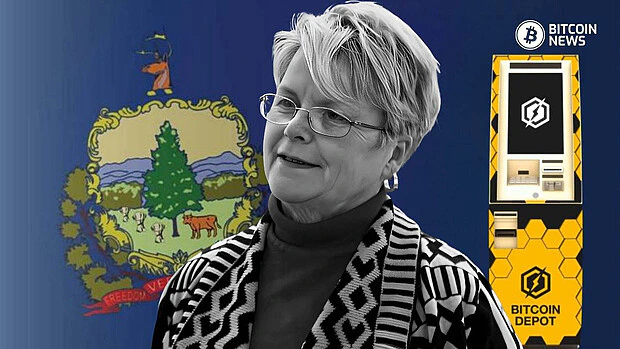In a bid to safeguard its residents from digital asset scams, Vermont legislators have passed a bill aimed at regulating Bitcoin ATMs. The legislation, awaiting Governor Phil Scott’s signature, seeks to address the rising concerns surrounding the exploitation of these ATMs for fraudulent activities.
Bitcoin ATMs, often resembling traditional cash dispensers, enable users to purchase or exchange bitcoin with cash or debit cards. However, their unregulated nature has made them a prime target for scammers looking to exploit unsuspecting individuals.
Regulating Bitcoin ATMs
The bill, known as H.659, introduces stringent regulations to curb fraudulent activities associated with Bitcoin ATMs.
Among its key provisions is a one-year moratorium on the installation of new Bitcoin ATMs in Vermont. This temporary halt aims to provide regulators with the opportunity to assess the effectiveness of existing regulations and implement further safeguards.
To mitigate the risk of financial loss for consumers, the legislation imposes a daily transaction limit of $1,000 for each customer. Additionally, it places a cap of 3% on the fees charged by Bitcoin ATM operators, ensuring fair and transparent transactions.
According to Aaron Ferenc, deputy banking commissioner at the Department of Financial Regulation, these measures are designed to “slow down the speeds at which people are being victimized.”
At a House Commerce Committee hearing, executives from two Vermont kiosk operators contended that proposed regulations would render their operations unfeasible. Larry Lipka, a senior executive at CoinFlip, also emphasized the high costs of servicing rural areas compared to California’s more favorable fee limits.
Lipka noted:
“You know, we call them ATMs because that’s what they look like, and they make people comfortable […] But we’re not an ATM. You’re not accessing your own cash. We’re selling you something that you buy voluntarily.”
Replying to the question “You just said that you call them ATMs, not that they are, so that people are comfortable with that?”, he mentioned, “We have (called them ATMs) in the past […] [Now] we prefer crypto kiosks … because that’s what it actually is. It’s not an ATM because it’s not connected to a bank.”
While some Bitcoin ATM operators have voiced concerns about the potential impact of the regulations on their businesses, lawmakers emphasize the importance of consumer protection.
Senator Ann Cummings underscores the need to shield Vermonters’ savings, acknowledging the challenges posed by the difficulty in tracking Bitcoin transactions.
Cummings said:
“This is about protecting Vermonters’ savings […] The difficulty in tracking both cryptocurrency and cash has made ‘Bitcoin ATMs’ a powerful vector for fraud […] Business always says, ‘If you do this to us we will go broke,’”
She also acknowledges the complexity of regulating Bitcoin, stating, “This is a whole new world. We probably won’t get it right the first time.”
However, the moratorium on new Bitcoin ATM installations might provide regulators with an opportunity to refine existing measures and address emerging challenges.
If signed into law, the bill mandates the Department of Financial Regulation to assess its effectiveness and report back to lawmakers by January 2025. This report will be crucial in shaping future policies and ensuring a balance between innovation and consumer protection in the realm of Bitcoin.
Vermont’s proactive approach to regulating Bitcoin ATMs reflects a growing recognition of the need to address the risks associated with Bitcoin transactions.
By implementing measures to protect consumers and combat fraudulent activities, the state aims to foster a safer environment for Bitcoin users.










